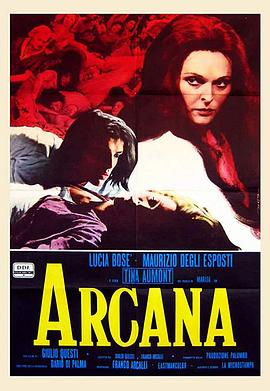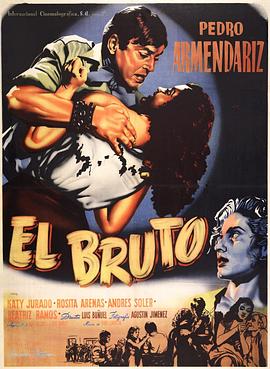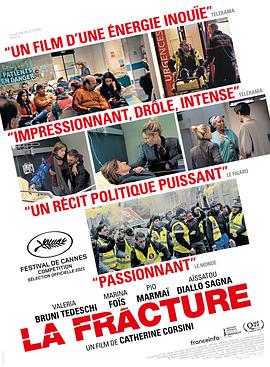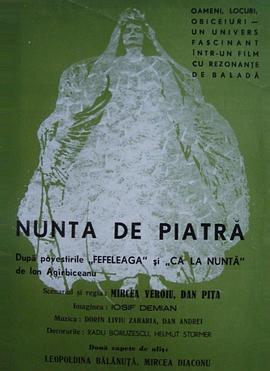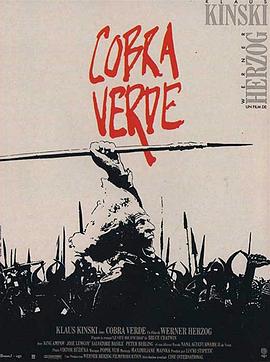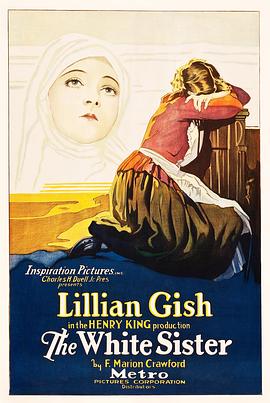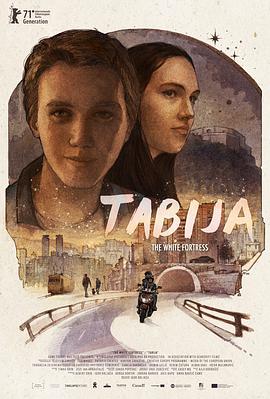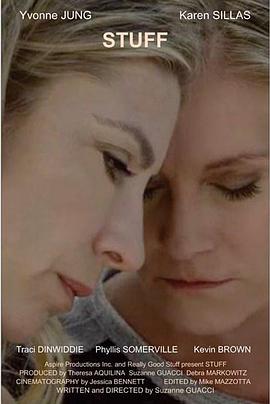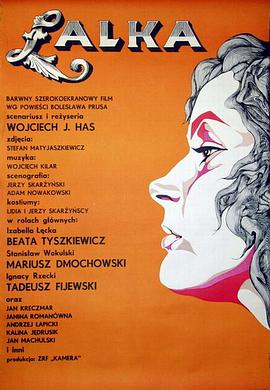-
备注:已完结
类型:电影
主演:比德洛·阿门德里兹 凯蒂·乔拉杜 Rosa Arenas
导演:路易斯·布努埃尔
语言:其它
年代:未知
简介:房产主安德鲁斯(安德鲁斯·索勒Andrés Soler 饰)打算拆除名下一幢旧楼,但聚居在此的贫苦人家不搬,发誓斗争到底。安德鲁斯去自己的屠宰场找工人比德洛(比德洛·阿门德里兹 Pedro Armendáriz 饰)帮忙。比德洛非常感谢老板给他工作,对安德鲁斯言听计从,马上搬进了他家的储藏室。安德鲁斯的老婆帕洛玛(凯蒂·乔拉杜 Katy Jurado 饰)经营一家肉铺,对肌肉发达又勤快的比德洛十分满意,不自觉地看上了他。与此同时,比德洛奉安德鲁斯之命趁夜去旧楼搞破坏,推倒了一个当面质问他的老头儿,被众人追杀,藏进了老头不知情的女儿米卡(罗萨·阿丽纳斯 Rosa Arenas 饰)家。比德络爱上了这位善良的姑娘,第一次开始思考老板口中的“禽兽暴民”究竟是谁…… 本片获墨西哥电影电视艺术学院奖最佳女配角奖(凯蒂·乔拉杜),并获最佳摄影和最佳男配角奖(安德鲁斯·索勒)提名。
-
备注:已完结
类型:电影
主演:瓦莱丽亚·布鲁尼·泰德斯基 玛琳娜·佛伊丝 皮奥·马麦 艾萨图·迪亚诺
导演:卡特琳·科西尼
语言:法语
年代:未知
简介:漫画家拉菲面临拉子婚姻危机,急于挽回偏偏摔断手送医。 然而危急的不仅是她的爱情,整个国家也濒临分崩离析。 外头镇暴警察棒打黄背心,院里过劳医护挥汗AED,闹哄哄的急诊室宛若法国社会缩影,各色人等一边看政治新闻斗嘴,一边哀嚎争论谁才值得优先关心。 在示威前线遭催泪弹炸伤的货车司 机,与为爱癫狂的拉菲相遇,两个背景迥异却同样失意的暴走沦落人,该如何在烟硝弥漫的医院里捱过动荡长夜,找回内心和平? 《美好时节》导演推出针砭时局的悲喜剧,不仅描绘女同志家庭,更剑指医疗体系及中下阶层民生问题。 意大利大卫奖影后华薇莉泰德奇在片中大飙演技,将失控的焦虑型依恋者演得神烦又令人怜惜。 当恋人之都烽烟四起,种种歇斯底里的背后,是困顿人生的哀鸣。
-
备注:已完结
类型:电影
主演:Leopoldina Balanuta Eliza Petraches
语言:其它
年代:未知
简介:影片分为两个不同的部分。第一部分由米尔恰·韦罗尤执导,描述了二十世纪初罗马尼亚一个寡妇的悲惨生活。第二部分由丹·皮察执导,讲的是一个婚礼上的新娘。 米尔恰·韦罗尤(1941年出生)和丹·皮察(1938年出生)是罗马尼亚最具独创性的电影制作人,他们一起制作了两部杰出的电影:《石婚》(1972)和《金魂》(1974)。毫无疑问,两部电影都是罗马尼亚有史以来最好的电影之一,在全世界受到了巨大的好评,被纽约现代艺术博物馆收藏。 《石婚》根据罗马尼亚作家Ion Agarbiceanu的小说改编,描写了上世纪初特兰西瓦尼亚乡村的生活状况。这些故事充满了一种深深的悲剧性的震撼,一种似乎无处不在的宿命感。所有这些都在令人难忘的摄影中被表达出来。毫不夸张地说,每一个镜头都是一件艺术品。 在第一部分中,女演员 Leopoldina Balanuta 的每一个动作、每一个眼神都充满了感性和智慧,她知道如何暗示多年的生活、希望和绝望的积累、固执的爱以及在沉默的斗篷下压抑的巨大痛苦。这些有力的镜头语言,只有第二部分的 Mircea Diaconu (逃兵) 眼中悲剧性的天真才能匹配。 两位导演中,米尔恰·韦罗尤喜欢充满沉思的冰冷凝结的风格,而丹·皮察在他的部分,则把它变成了一个充满活力的故事,有许多讽刺的时刻,富有表现力的人物,并在最后有一个痛苦的悲剧转折。 无论如何,《石婚》是一部值得一遍又一遍地观看的电影。每一遍,它似乎都增长了新的维度。
-
备注:已完结
类型:电影
主演:Pavle Cemerikic Sumeja Dardagan 贾斯敏
导演:伊戈尔·德尔利亚恰
语言:波斯尼亚语,英语
年代:未知
简介:青少年法鲁克和朋友靠帮黑手党做事为生,直到他遇到中产阶级女孩莫娜,一段青春期的浪漫爱情由此萌发。影片徘徊在惊悚片和童话故事之间,灰暗现实与迷人梦境互相交织,极富油画质感的布光、舒缓的钢琴旋律衬托出年轻人的迷惘与哀愁。波黑导演伊戈尔·德尔利亚凭借一个浪漫爱情故事之壳,展现战后萨拉热窝的社会氛围,以及不同阶层的生活状况。本片入围2021年柏林电影节新生代青年竞赛单元。
-
备注:已完结
类型:电影
主演:Lukerya Ilyashenko Denis Gilmanov E
导演:伊格尔·沃洛申
语言:俄语
年代:未知
简介:法医Lisa痴迷于人体的美丽,她相信肉体的爱能治愈,能缓解创伤和问题的痛苦。因此,她过着一种极其自由的生活方式,经常在一个晚上进入随意的关系。但是有一天,丽莎面前的桌子上有一具女孩的尸体,她前一天晚上和她一起过夜。受害者的尸体上印着一张不知名男子的照片。。。
-
备注:已完结
类型:电影
主演:马里乌什·德莫霍夫斯基 贝娅塔·蒂希基维茨 菲耶夫斯基·塔德乌什 Ja
导演:沃伊切赫·哈斯
语言:其它
年代:未知
简介:The Doll is an adaptation of the novel, The Doll (novel) by Bolesław Prus, which is regarded by many as one of the finest Polish novels ever written and, along with Pharaoh (novel), made Bolesław Prus a potential candidate for the Nobel Prize in literature. The influence of Émile Zola is evident, and some have compared the novel to Madame Bovary by Gustave Flaubert; both were Prus's contemporaries. The movie, however, may be more compared to Stendhal's Le Rouge et le Noir, (The Red and the Black). The Doll constitutes a panorama of life in Warsaw between 1878 and 1879, and at the same time is a subtle story of three generations of Polish idealists, their psychological complications, their involvement in the history of the nineteenth century, social dramas, moral problems and the experience of tragic existence. At the same time this story describes the disintegration of social relationships and the growing separation of a society whose aristocratic elite spreads the models of vanity and idleness. In the bad air of a backward country, anti-Semitic ideas are born, valuable individuals meet obstacles on their way, and scoundrels are successful. This poetic love story follows a nouveau riche merchant, Stanislaw Wokulski, through a series of trials and tribulations occasioned by his obsessive passion for an aristocratic beauty, Izabela Lecka, played by the famous Polish actress, Beata Tyszkiewicz. Plot As a descendant of an impoverished Polish noble family, young Wokulski is forced to work as a waiter at Hopfer's, a Warsaw restaurant, while dreaming of a life in science. After taking part in the failed 1863 Uprising against Tsarist Russia, he is sentenced to exile in Siberia. On eventual return to Warsaw, he becomes a salesman at Mincel's haberdashery. Marrying the late owner's widow (who eventually dies), he comes into money and uses it to set up a partnership with a Russian merchant he had met while in exile. The two merchants go to Bulgaria during the Russo-Turkish War of 1877-78, and Wokulski makes a fortune supplying the Russian Army. The enterprising Wokulski now proves a romantic at heart, falling in love with Izabela, daughter of the vacuous, bankrupt aristocrat, Tomasz Łęcki. In his quest to win Izabela, Wokulski begins frequenting theatres and aristocratic salons; and to help her financially distressed father, founds a company and sets the aristocrats up as shareholders in his business.The indolence of these aristocrats, who secure with their pensions, are too lazy to undertake new business risks, frustrates Wokulski. His ability to make money is respected but his lack of family and social rank is condescended to. Because of his help (in secret) to Izabela's impecunious but influential father, the girl becomes aware of his affection. In the end she consents to accept him, but without true devotion or love.(wikipedia)
